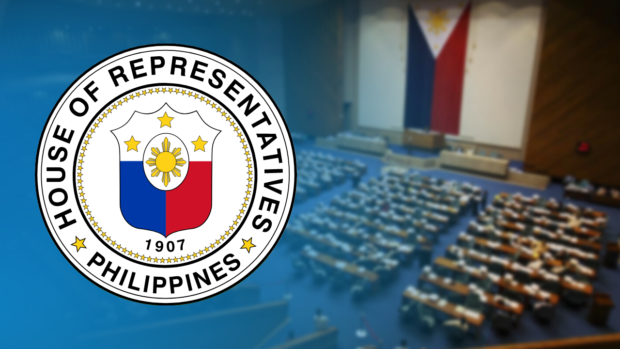House panel OKs bill institutionalizing CHEd’s tertiary education equivalency program

House of Representatives logo and plenary. INQUIRER FILES
MANILA, Philippines — A House of Representatives committee has approved a proposed measure that will institutionalize the Expanded Tertiary Education Equivalency and Accreditation Program (ETEEAP) of the Commission on Higher Education (CHEd).
During the hearing on Monday, the House Committee on higher and technical education gave the nod to House Bill No. 5728, authored by Tingog party-list Reps. Yedda Marie Romualdez and Jude Acidre.
If enacted, the bill would allow professionals who have been working for at least five years to use their knowledge, experience, achievements, and other gained skills to subtract it from the total number of credits required before they can graduate.
The following requirements are asked of the applicants for the ETEEAP:
- Filipino citizen, whether in the Philippines or abroad
- has at least five years working experience
- birth certificate issued by the Philippine Statistics Authority
- 23 years old or above
- resume/ curriculum vitae/ personal data sheet
- duly accomplished ETEEAP application form
- service record or employment certificate signed by employer
- job description signed by employer
- transcript of records
Acidre, who was present during the hearing, said that having their proposal approved by the committee — and hopefully enacted into law — would ensure inclusivity in the country’s educational system as it would benefit workers who are catching up with their studies.
“Flexible learning is an important aspect of inclusive learning, equally important is the need to strengthen more flexible pathways in education. To this end, we need to provide avenues for the acquisition of knowledge and skills at different life stages that will meet the different needs and circumstances of every learner,” Acidre said.
“It is only then that we can truly say that our educational system is inclusive,” he added.
With the proposal approved by the committee, it would then be forwarded to the plenary for second and third readings.